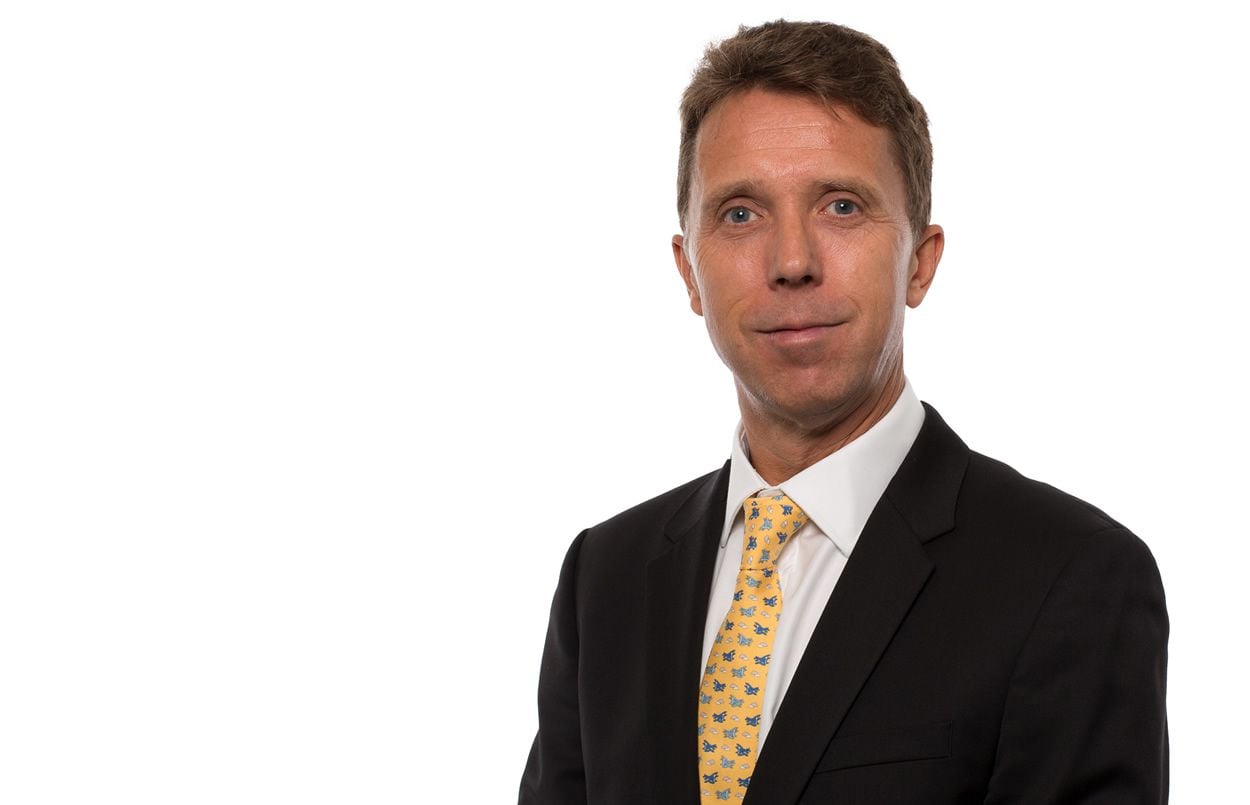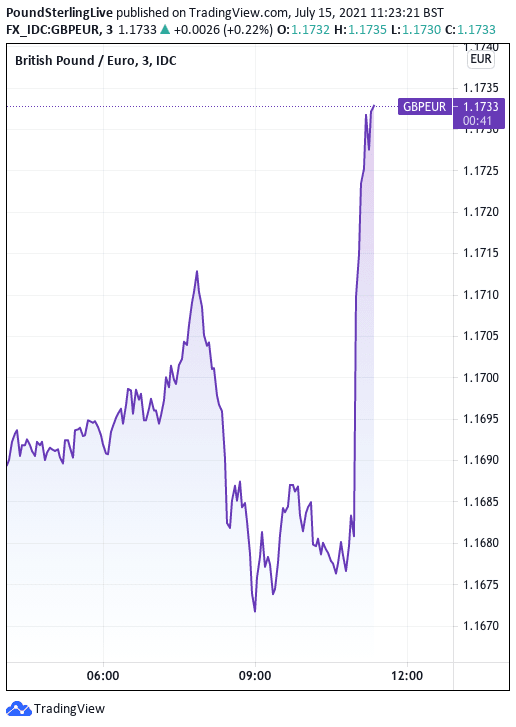Saunders Emerges as a Hawk
- Written by: Gary Howes
- Saunders sees need for ending of 'easy' policy
- Ramsden warns on inflation
- GBP bought as new hawks take flight

Above: Michael Saunders. Image © Bank of England
- Market rates at publication: GBP/EUR: 1.1740 | GBP/USD: 1.3890
- Bank transfer rates: 1.1512 | 1.3600
- Specialist transfer rates: 1.1660 | 1.3790
- Get a bank-beating exchange rate quote, here
- Set an exchange rate alert, here
The Bank of England could be in the process of signalling to markets that an interest rate rise is likely in coming months, with two members of the Monetary Policy Committee (MPC) now saying such a move is appropriate.
The Pound rose after Monetary Policy Committee (MPC) member Michael Saunders said on Thursday that the withdrawal of stimulus at the Bank might be appropriate soon.
"Activity seems to have recovered a bit faster than the central forecast in the May MPR, and risks lie on the side that the output gap will close earlier than previously expected," said Saunders, in a speech delivered to an online webinar.
"In my view, if activity and inflation indicators remain in line with recent trends and downside risks to growth and inflation do not rise significantly (and these conditions are important), then it may become appropriate fairly soon to withdraw some of the current monetary stimulus in order to return inflation to the 2% target on a sustained basis," he added.
There was a discernible pick up in the value of the Pound in the wake of the data:
Secure a retail exchange rate that is between 3-5% stronger than offered by leading banks, learn more.
The Saunders comments follow those of Dave Ramsden, Deputy Governor for Markets & Banking at the Bank of England, who said Wednesday that rising inflation risks in the UK could soon push the Bank into an interest rate rise.
The commentary out of the Bank this week therefore signals a potential shift in thinking away from the 'lower for longer' mantra on interest rates to one of action.
Saunders said options to withdraw stimulus might include curtailing the current asset purchase programme (quantitative easing) and ending it in the next month or two and before the full £150BN has been purchased.
This is certainly a stance that will have caught the markets by surprise.
The market currently expects the programme to run until the end of 2020 at least, based on the Bank's most recent guidance.
For the British Pound the developments are significant in that the comments signal the Bank could be amongst the first group of major central banks that raise interest rates.
For a foreign exchange market obsessing over this race, such a first-mover advantage could underpin the Pound going forward.
"The BoE hawks are in full flight now. Saunders joins Ramsden. Looks like they're pushing back on Bailey's dovish view. I think we'll see a few votes for ending QE in Aug now but not a majority. Floor for GBP in place," says Viraj Patel, a strategist at Vanda Research.
{wbamp-hide start}
{wbamp-hide end}{wbamp-show start}{wbamp-show end}
Following the Saunders comments the Pound ticked higher, an apparent sign that the market was adjusting to the view that the Bank will likely raise rates in the first half of 2022:
The Pound-to-Euro exchange rate rose to 1.1727 having been below 1.17 earlier in the day.
The Pound-to-Dollar exchange rate rose to 1.3879 having been as low as 1.3813 earlier in the day.
Dave Ramsden, Deputy Governor for Markets & Banking, attracted attention on Wednesday when he said in a speech that UK inflation might rise as high as 4% "for a period later this year", double the Bank's target and greater than the current 3.0% peak forecast by the Bank for the same period.
Ramsden spoke on the same day it was revealed UK inflation had risen 2.5% year-on-year in June.
It was the previous Bank of England Chief Economist Andy Haldane who had assumed the position of 'arch hawk' on the MPC with his warnings on the risks posed by the current ultra-lose policy settings at the Bank.
But his departure last month left investors wondering who would carry the torch for higher interest rates.
That Saunders and Ramsden have come forward suggests the Bank is in fact not stuffed to the rafters with doves and, indeed, there might be others willing to vote for higher rates and the ending of quantitative easing in coming months.
Such a hawkish tilt at the MPC is therefore likely to prove supportive of Pound exchange rates going forward, ensuring any downside is limited.






